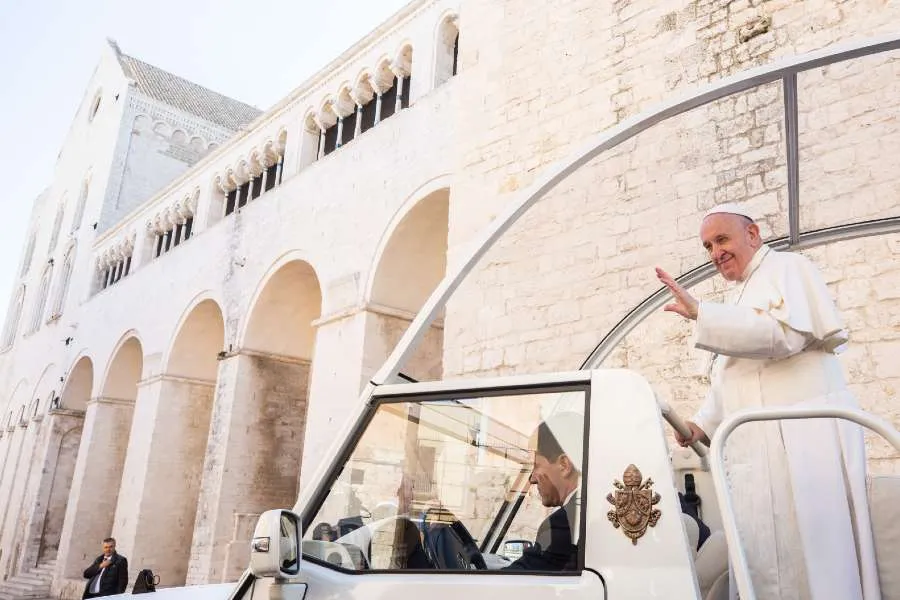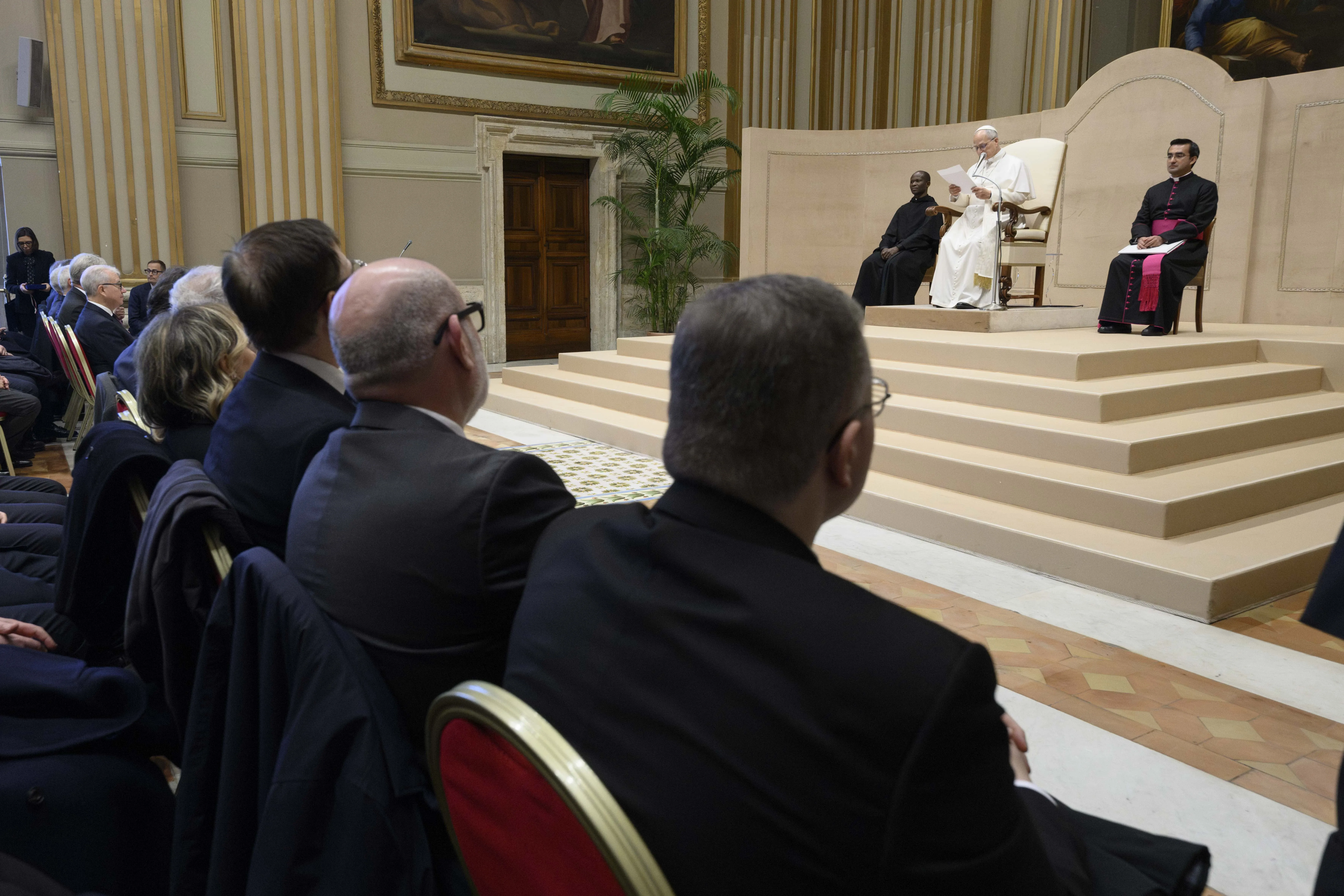Pope Francis said that a sense of fear of “what is instrumentally painted as an invasion” fuels the rejection of others.
“The rhetoric of the clash of civilizations only serves to justify violence and fuel hatred,” he added.
“Of course, hospitality and dignified integration are stages of a difficult process; however, it is unthinkable to be able to face it by raising walls. It frightens me when I listen to some speeches by some leaders of the new forms of populism, and it makes me hear speeches that sowed fear and then hatred in the 1930s of the last century,” Pope Francis said.
“All too often, history has known conflicts and struggles based on the distorted notion that we are defending God by opposing anyone who does not share our set of beliefs,” he said. “Indeed, extremism and fundamentalism deny the dignity of the human person and his or her religious freedom, and thus lead to moral decline and the spread of an antagonistic view of human relationships.”
To counter this, the pope said: “we need to develop a theology of acceptance and dialogue leading to a renewed understanding and proclamation of the teaching of Scripture.”
(Story continues below)
Francis said that amid deep divisions in societies, Catholics are called to offer witness of unity.
“Just as Jesus lived and worked in a context of differing cultures and beliefs, so we find ourselves in a multifaceted environment scarred by divisions and forms of inequality that lead to instability. Amid deep fault lines and economic, religious, confessional and political conflicts, we are called to offer our witness to unity and peace. We do so prompted by our faith and membership in the Church, seeking to understand the contribution that we, as disciples of the Lord, can make to all the men and women of the Mediterranean region,” he said.
Pope Francis met the Mediterranean bishops in Bari’s Basilica of St. Nicholas, where he prayed in the crypt, venerating the relics of the saint.
In his Angelus address in Bari, Pope Francis prayed particularly for the people of Syria who have suffered from many years of war.
“While we are gathered here to pray and reflect on peace and the fate of the peoples facing the Mediterranean, on the other side of this sea, particularly in the northwest of Syria, a huge tragedy is taking place,” he said.
Violence in northwestern Syrian province of Idlib has displaced more than half a million people, primarily women and children, since December. Pope Francis has repeatedly called for peaceful negotiation and humanitarian protections during the Russian-backed Syrian government’s offensive Idlib, Syria’s last rebel-held territory, which borders Turkey.
The pope said Feb. 23 that the international community has been silent in the face of the tears of suffering children, and called on all actors involved to “put aside calculations and interests to safeguard the lives of civilians and many innocent children who pay the consequences.”
Pope Francis told the Italian bishops that war is madness because “it is crazy to destroy houses, bridges, factories, hospitals, and to kill people and destroy resources rather than building human and economic relationships.”
“There is no reasonable alternative to peace, because every attempt at exploitation or supremacy demeans both its author and its target. It shows a myopic grasp of reality, since it can offer no future to either of the two. War is thus the failure of every plan, human and divine,” the pope said.
Courtney Mares is a Rome Correspondent for Catholic News Agency. A graduate of Harvard University, she has reported from news bureaus on three continents and was awarded the Gardner Fellowship for her work with North Korean refugees.








